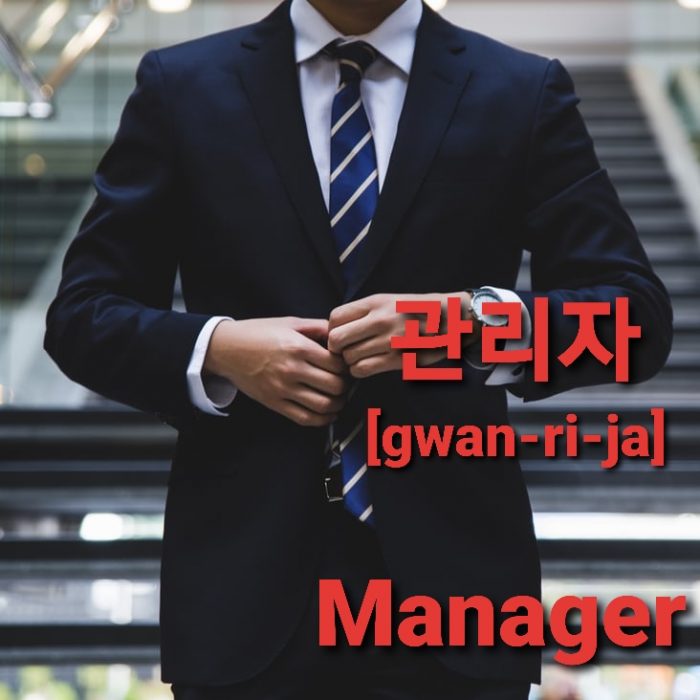When you are learning Korean, there are important words that you should know, such as the names of the people you work for or work with. Today we are going to learn how to say manager in Korean.
How do I say Manager in Korean?
매니저 (man-ni-je), which is a borrowed word from English making this one easy to remember!
What does Sajangnim mean in Korean?
Sajangnim 사장님 means ‘boss’ in Korean and is how you would refer to this person. Son-bae is another way to refer to a co-worker who may be older or may have more experience than you.
How do you Address a Manager in Korean?
You would refer to your Korean manager as 매니저 (man-ni-je). You could also call your manager ‘boss’ and in this case would refer to him or her as Sajangnim 사장님. Note her that ‘nim’ is a very respectful way to refer to someone who is in a higher position than you would are.
Sample Sentences using Manager in Korean
매니저
이 가게 매니저가 누구인가요?
매니저 좀 바꿔주세요
매니저랑 얘기 할수 있을까요?
매니저 구하시나요?
Other Korean Job Titles
상무 Sang-moo = Vice President of the company.
이사 Ee-sa = Director of operations. Usually a younger person has this role and aims to eventually take over a higher position.
수석 부장 Soo-sok bu-jang = General manager. This person is usually the head of a specific department.
부장 Bu-jang = Head manager, usually of a specific division.
차장 Cha-jjang = Team leader or senior (next-in-line) manager.
과장 Gwa-jang = Manager (with limited roles).
대리 Dae-ri = Assistant manager.
As job titles in Korea can be a status symbol, you need to make sure you are referring to people according to their proper title. This is when asking someone’s personal information in Korean becomes very important!
Happy studying everyone!




